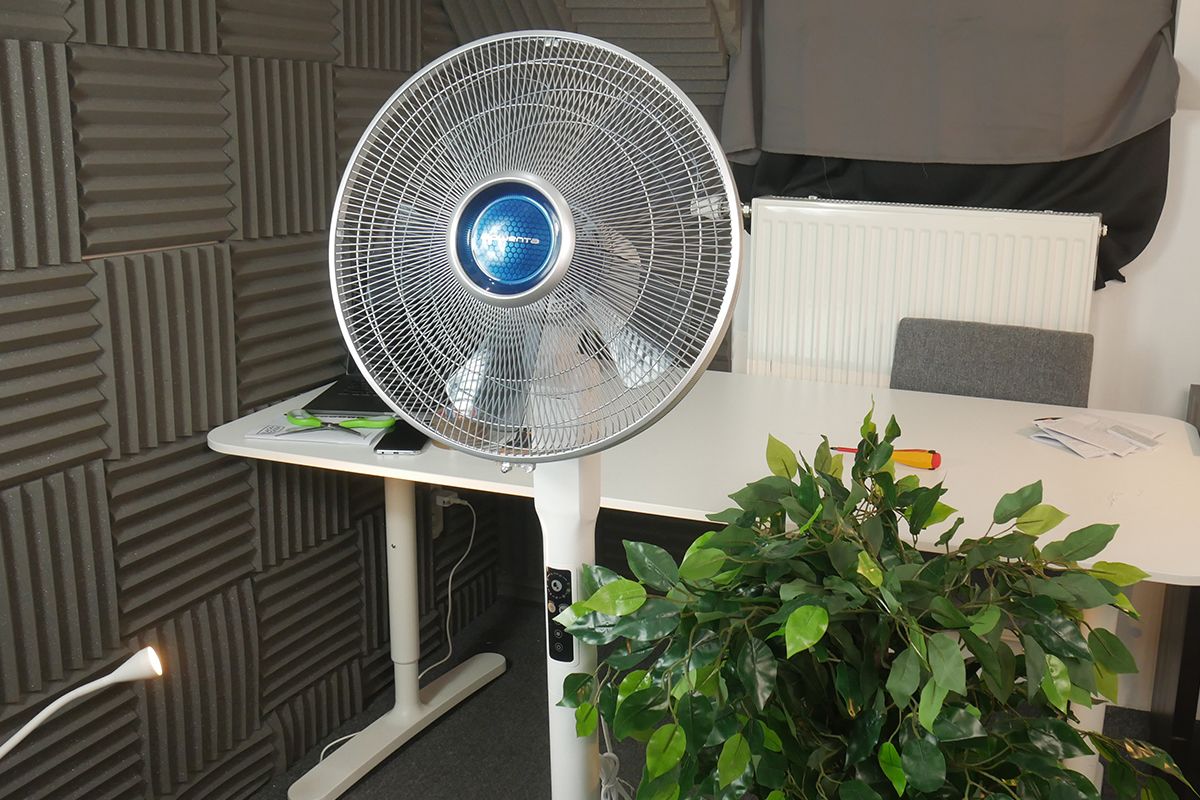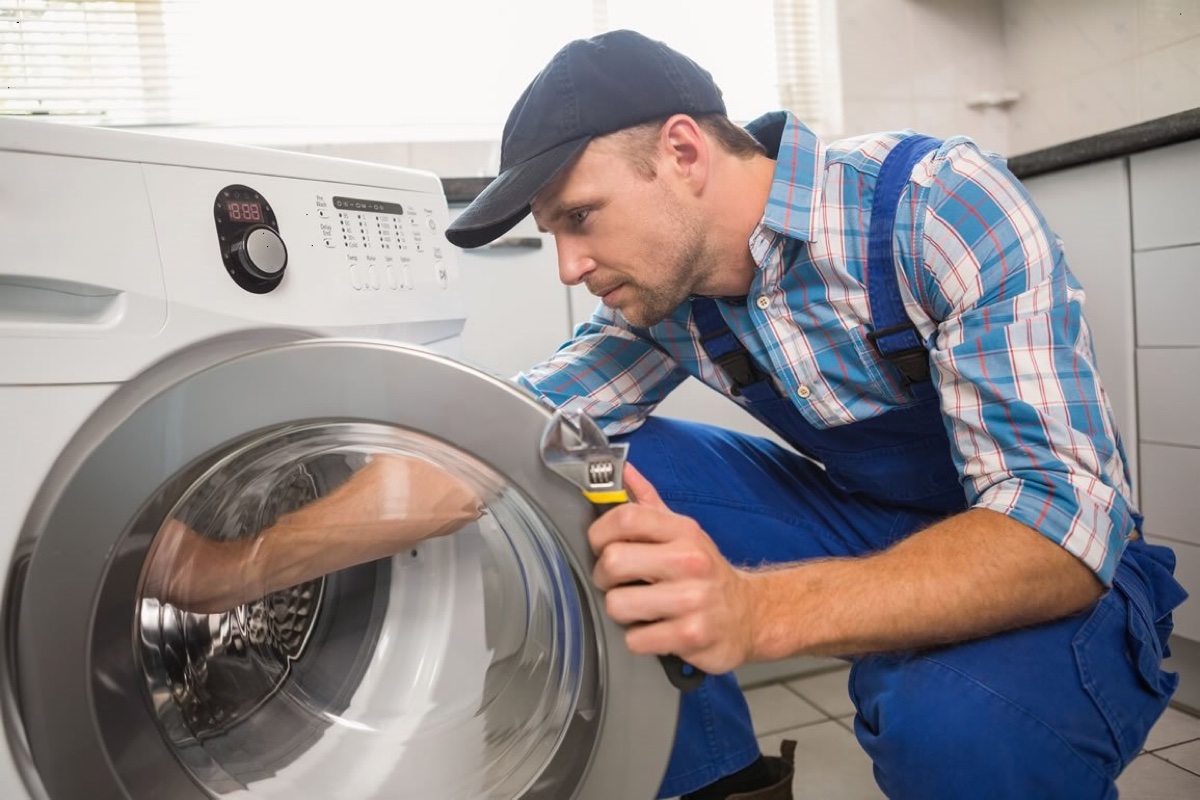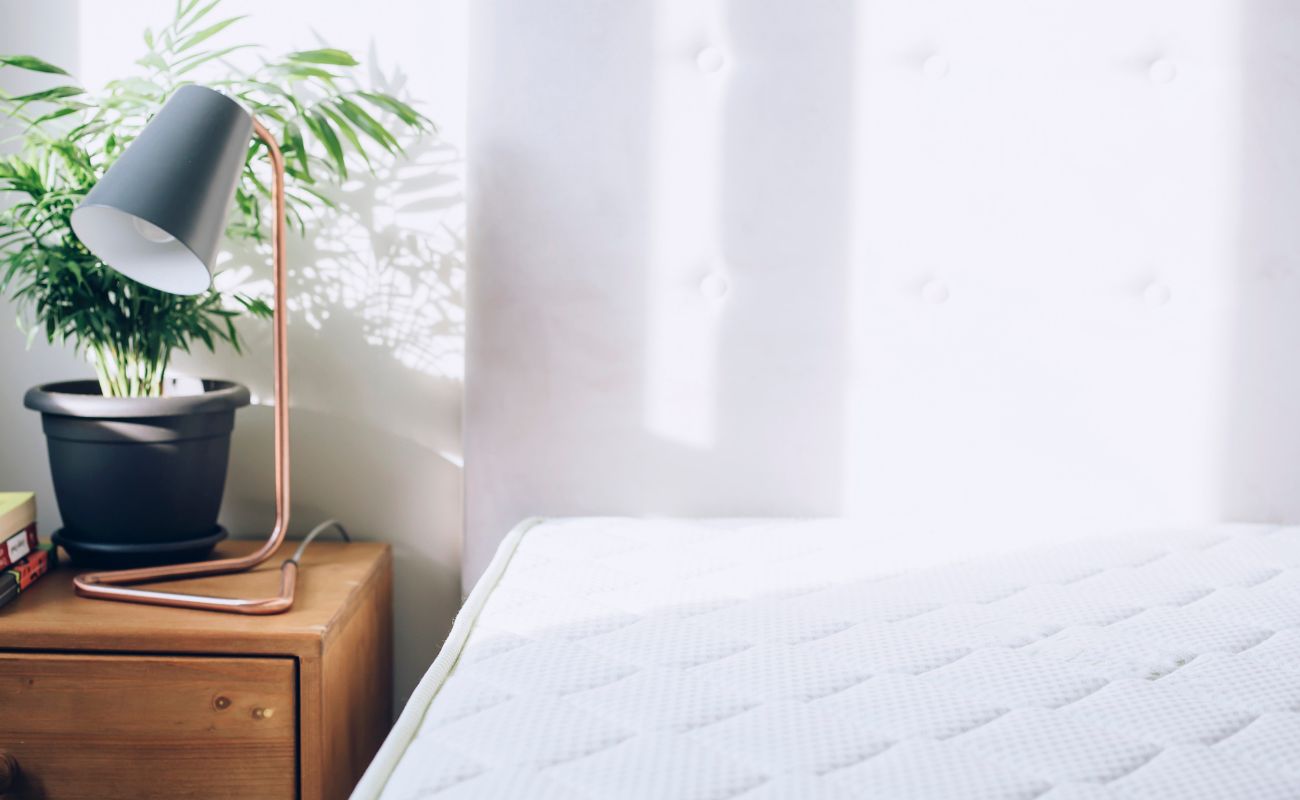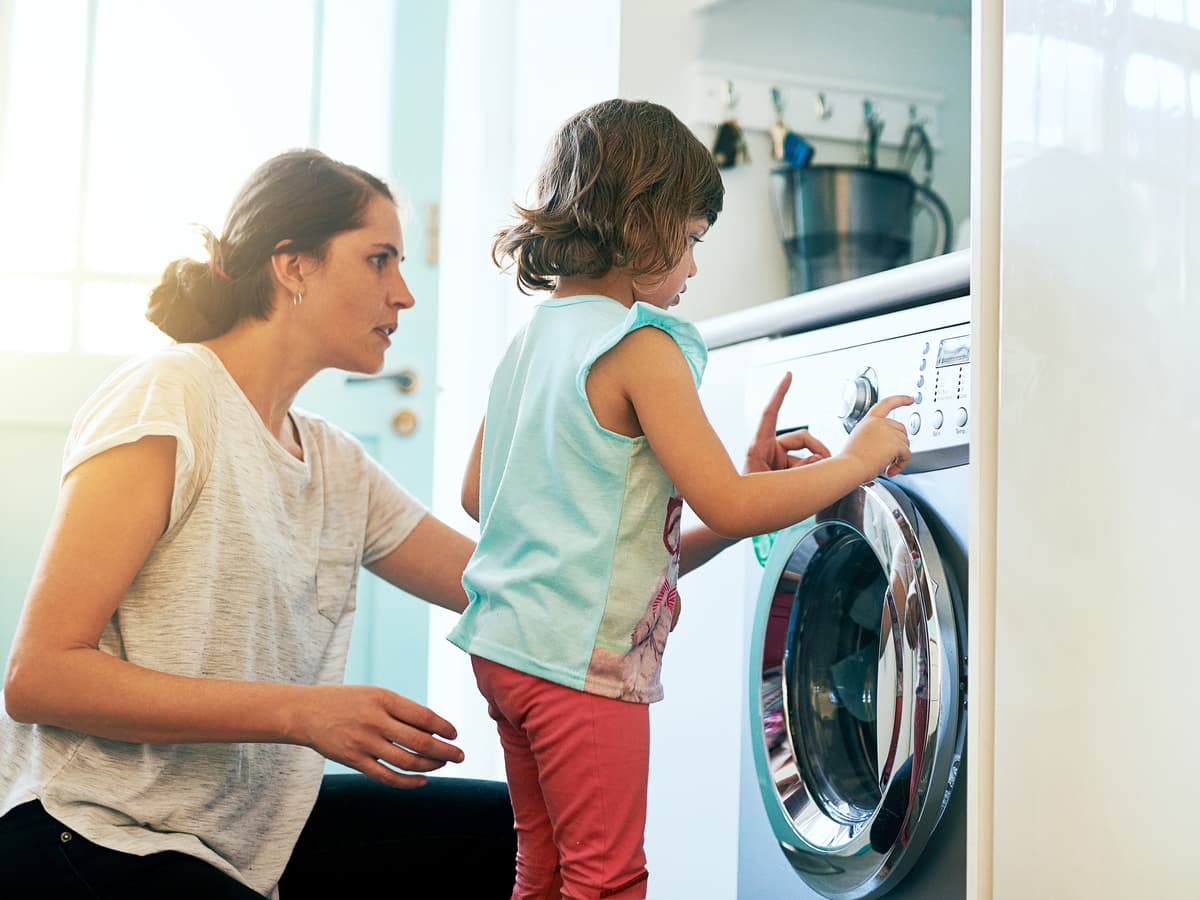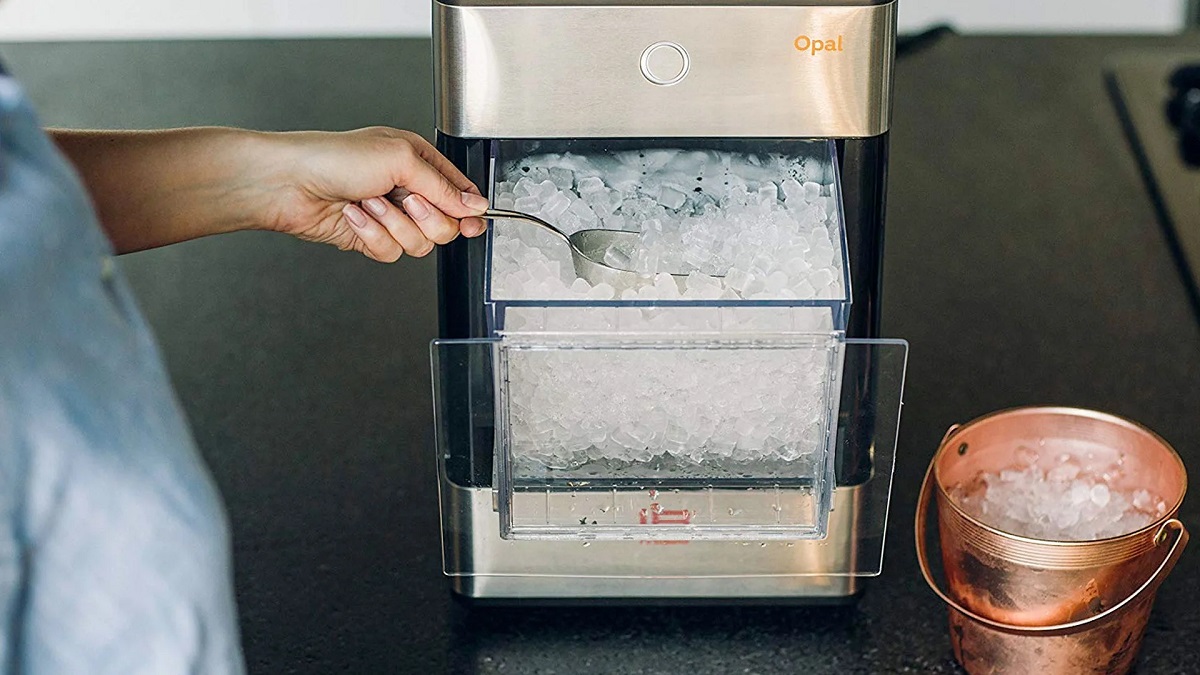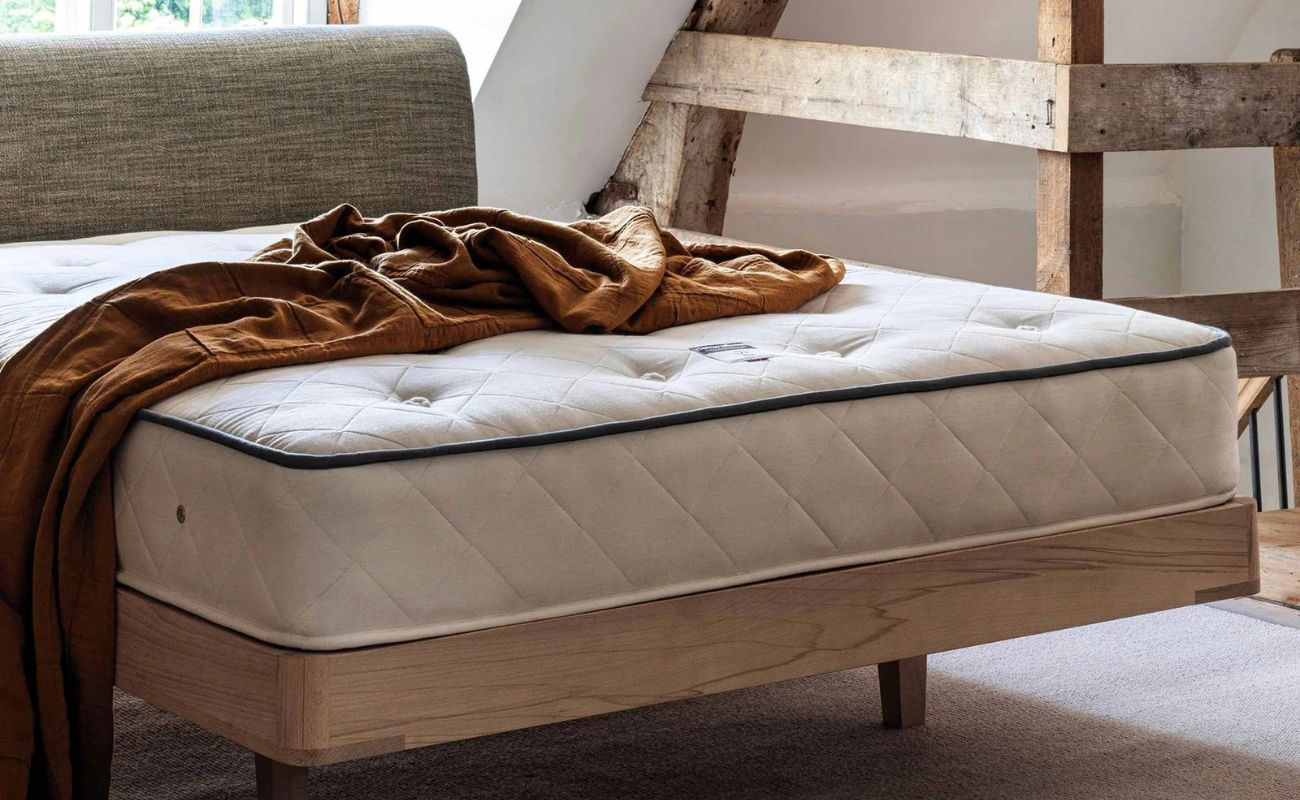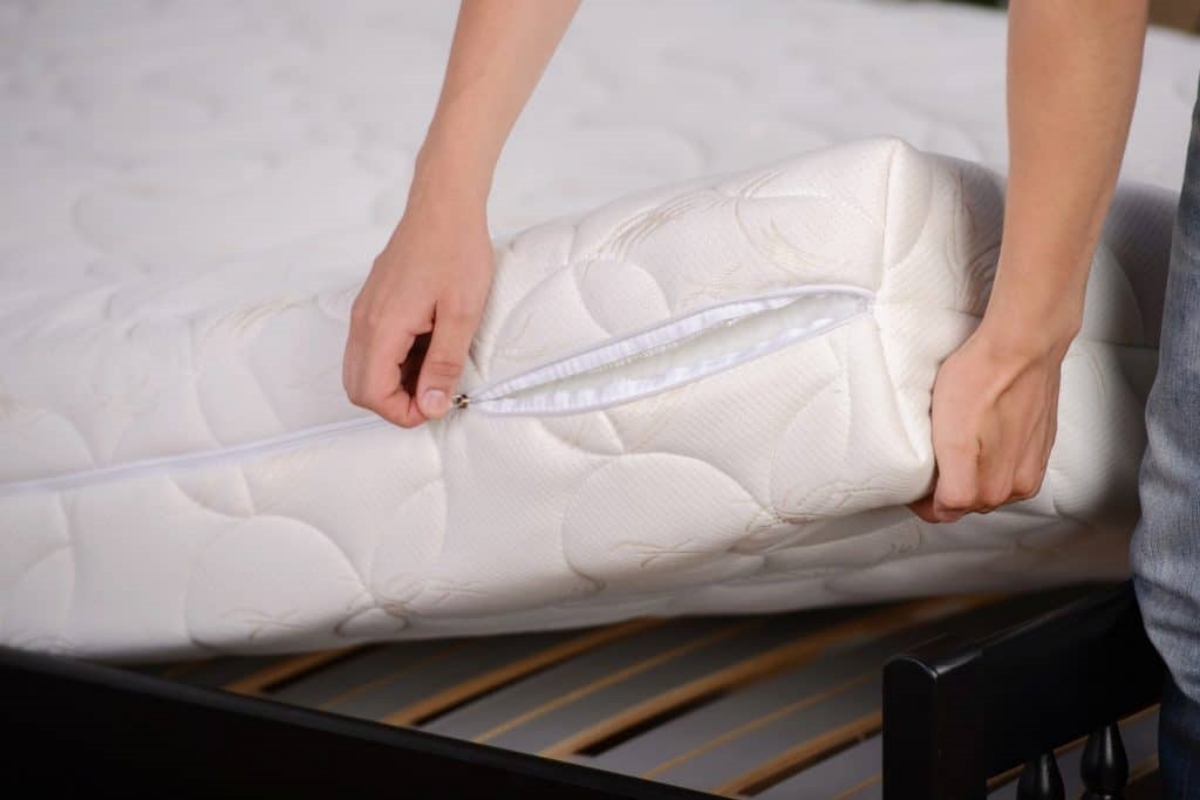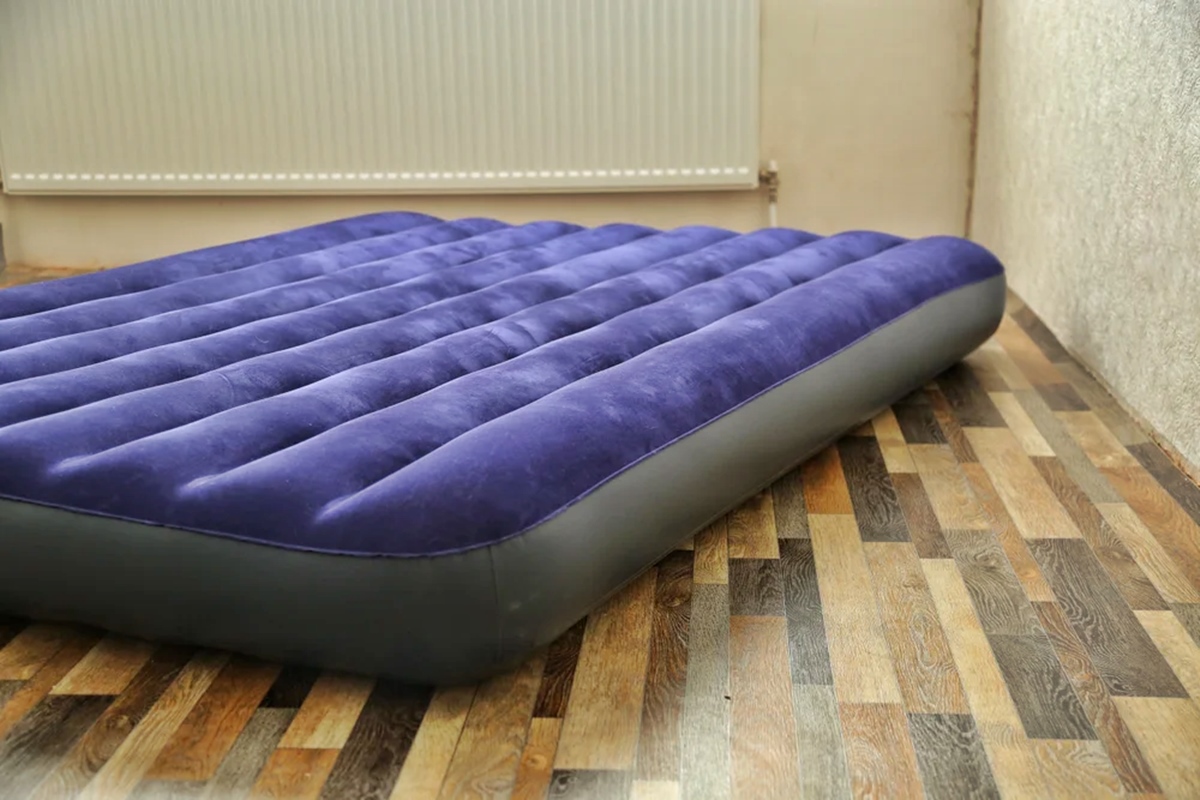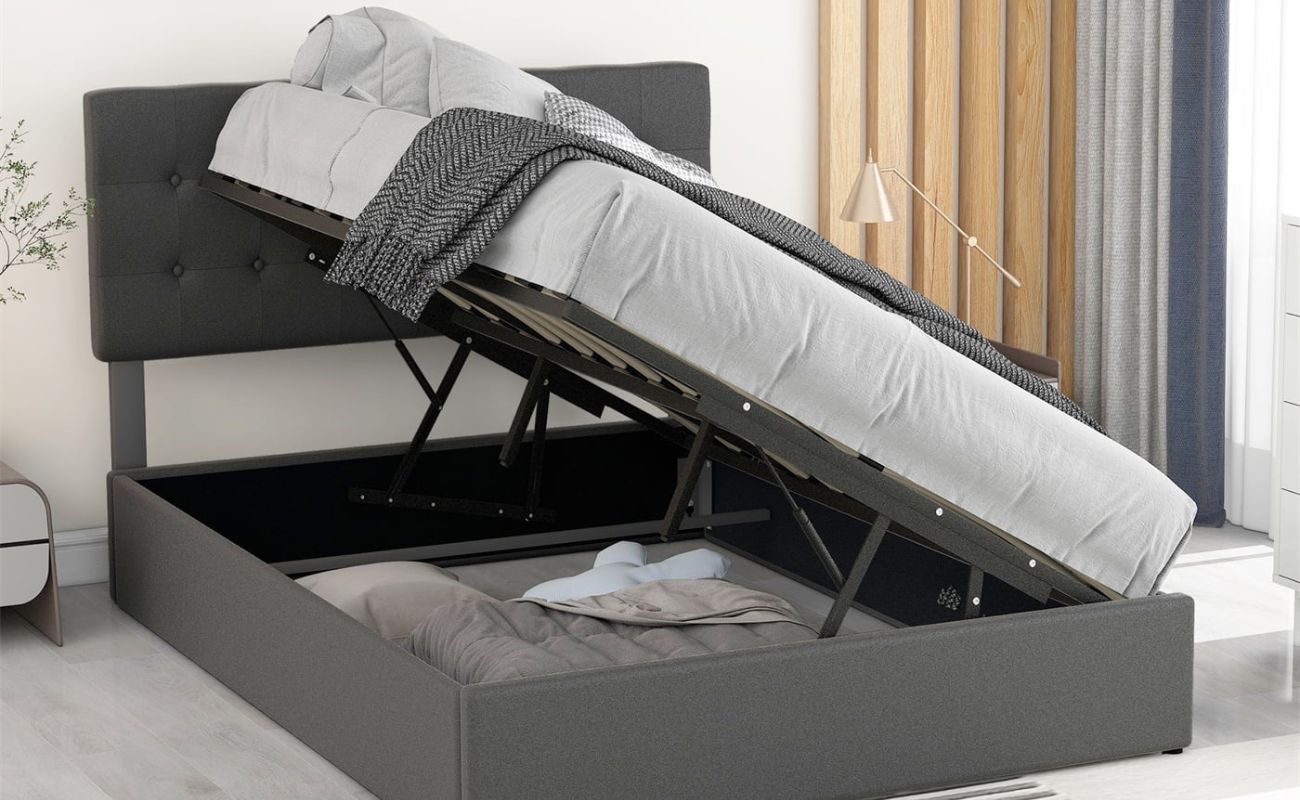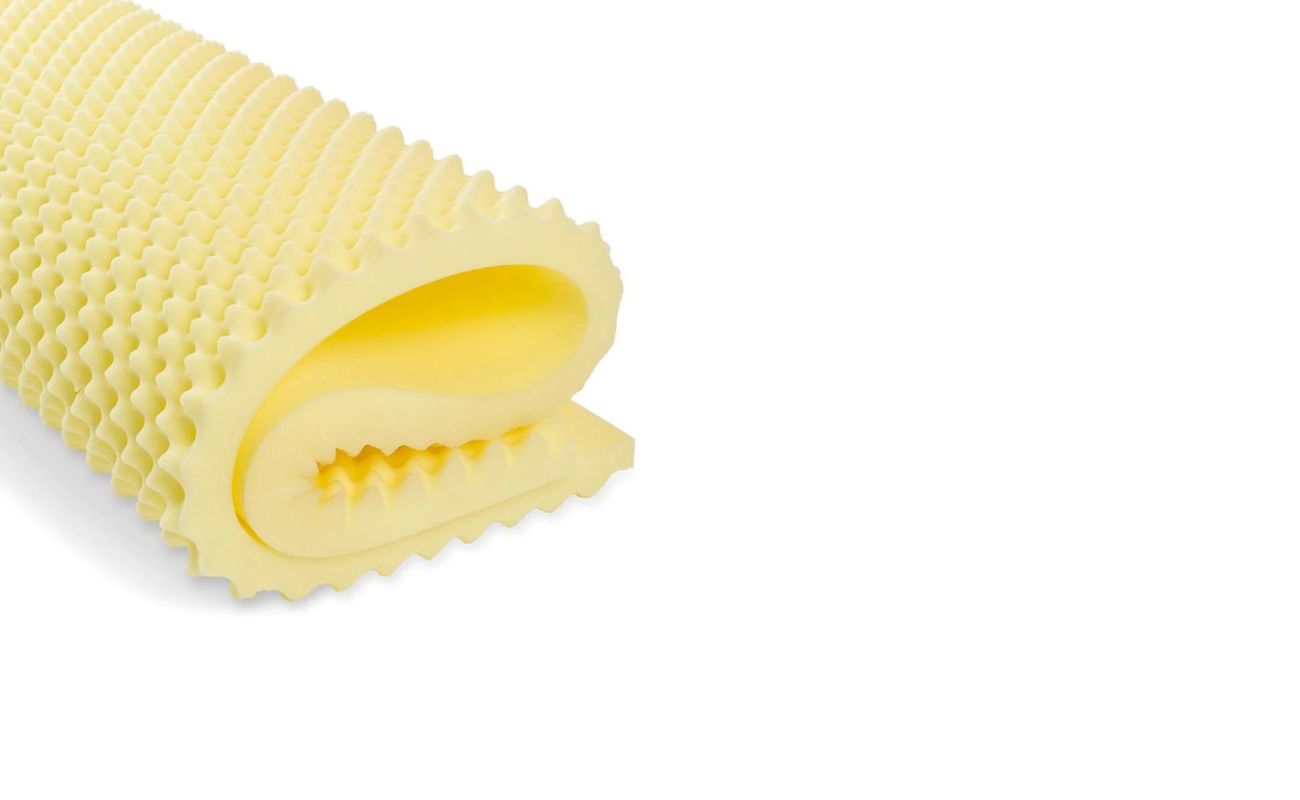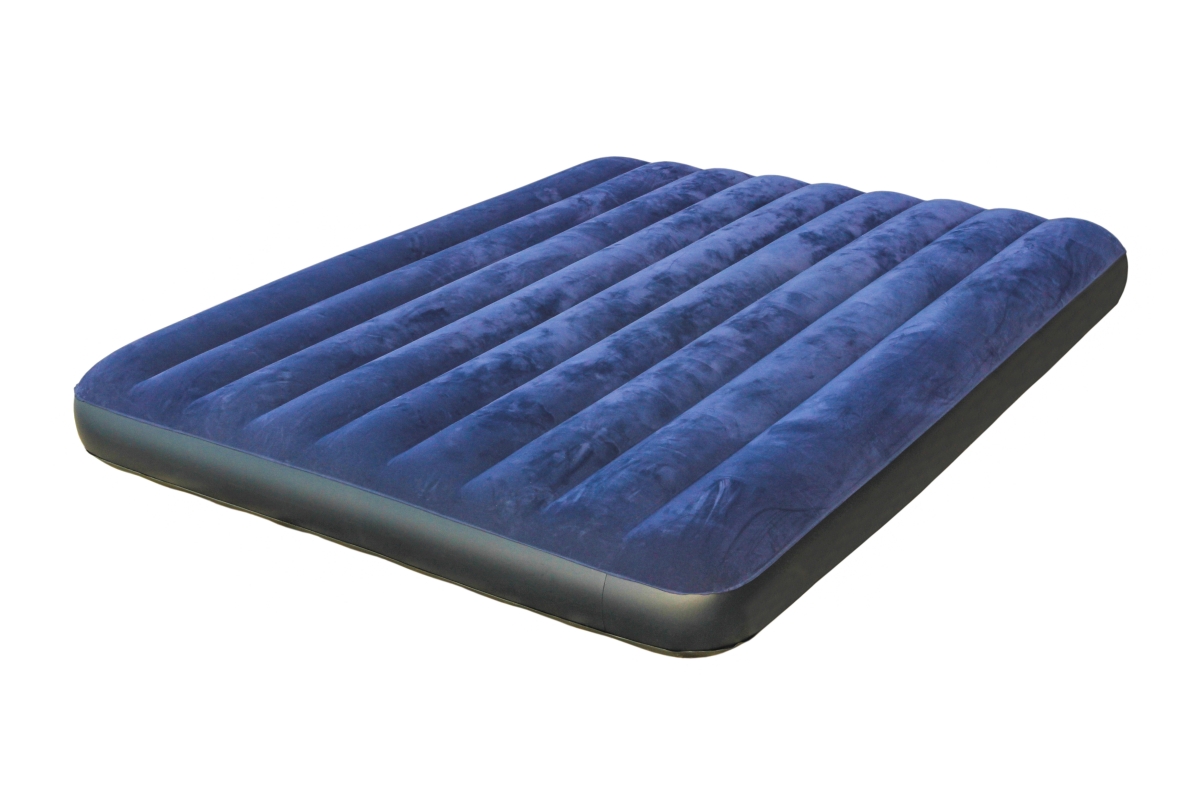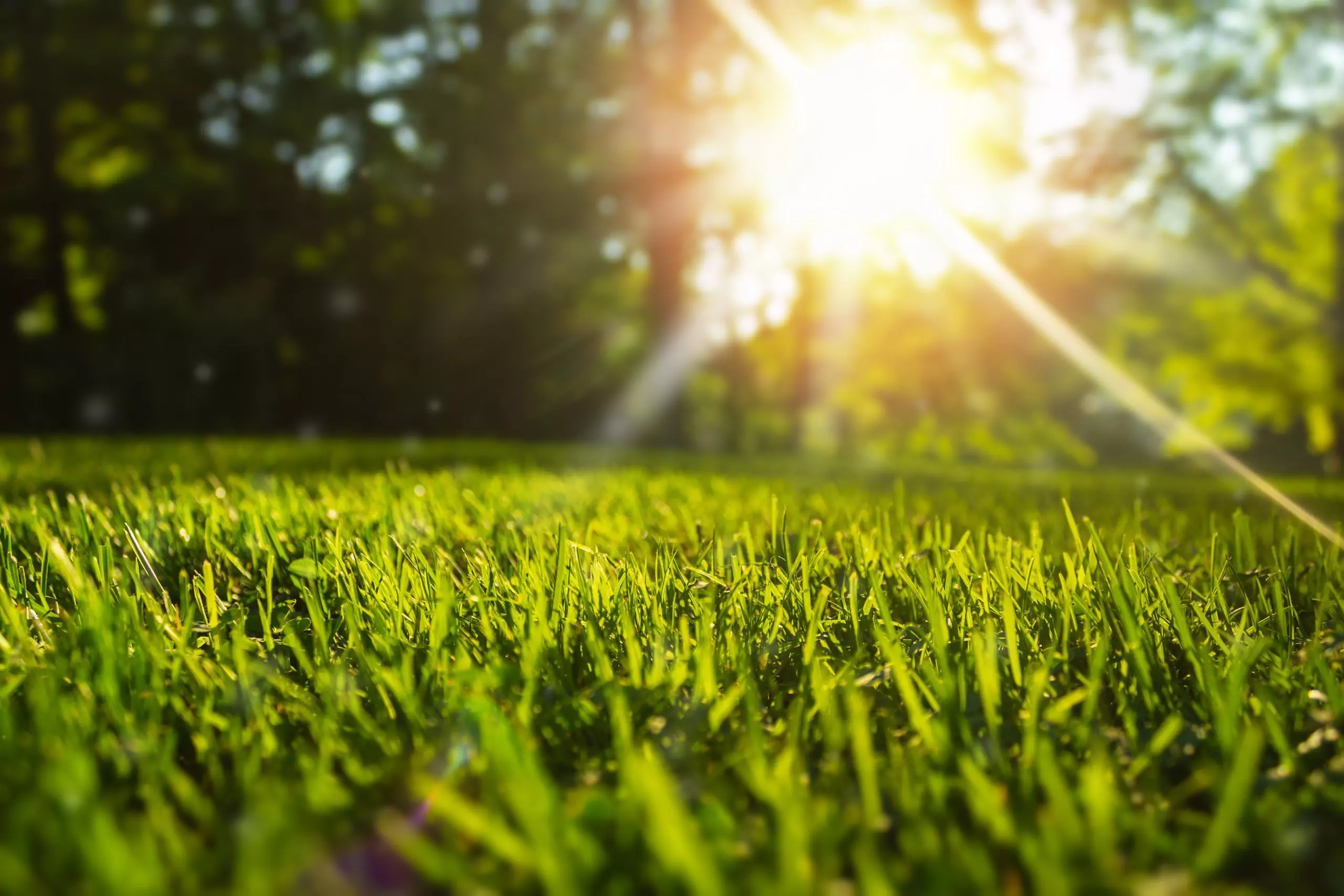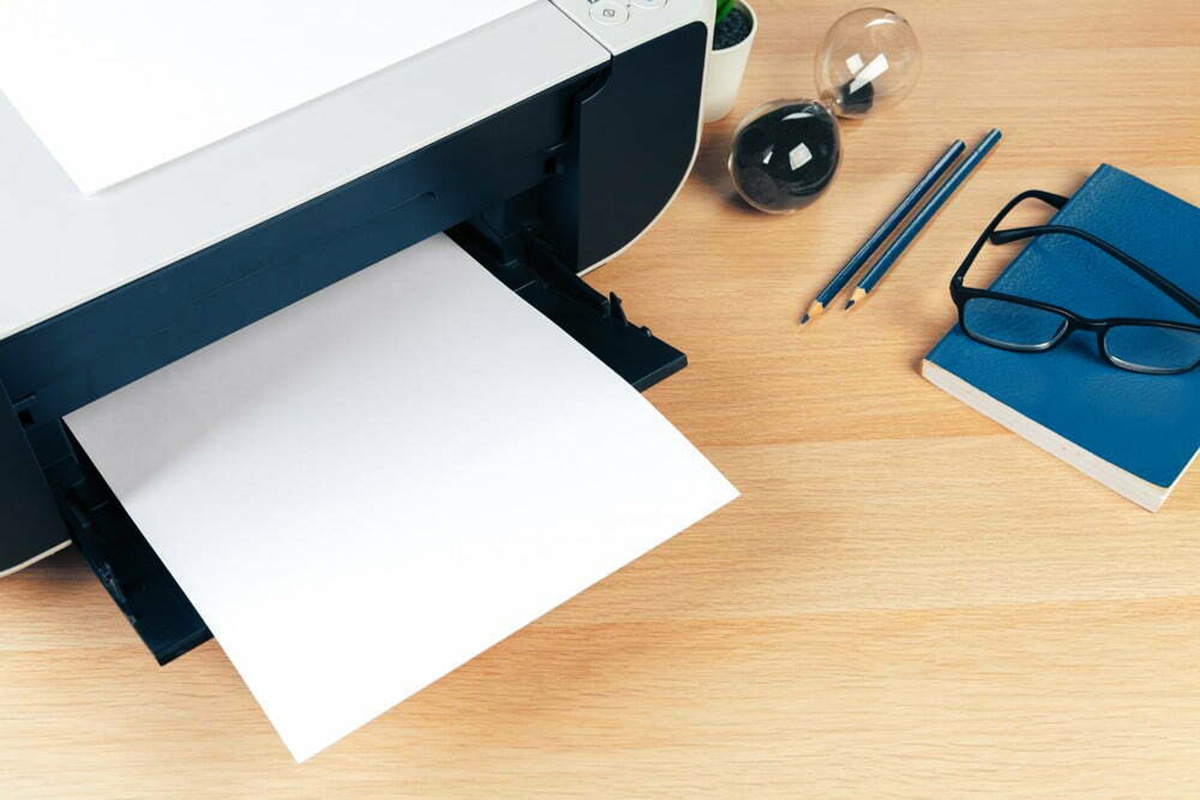Home>Furniture>Bedroom Furniture>Why Is My New Mattress Squeaking
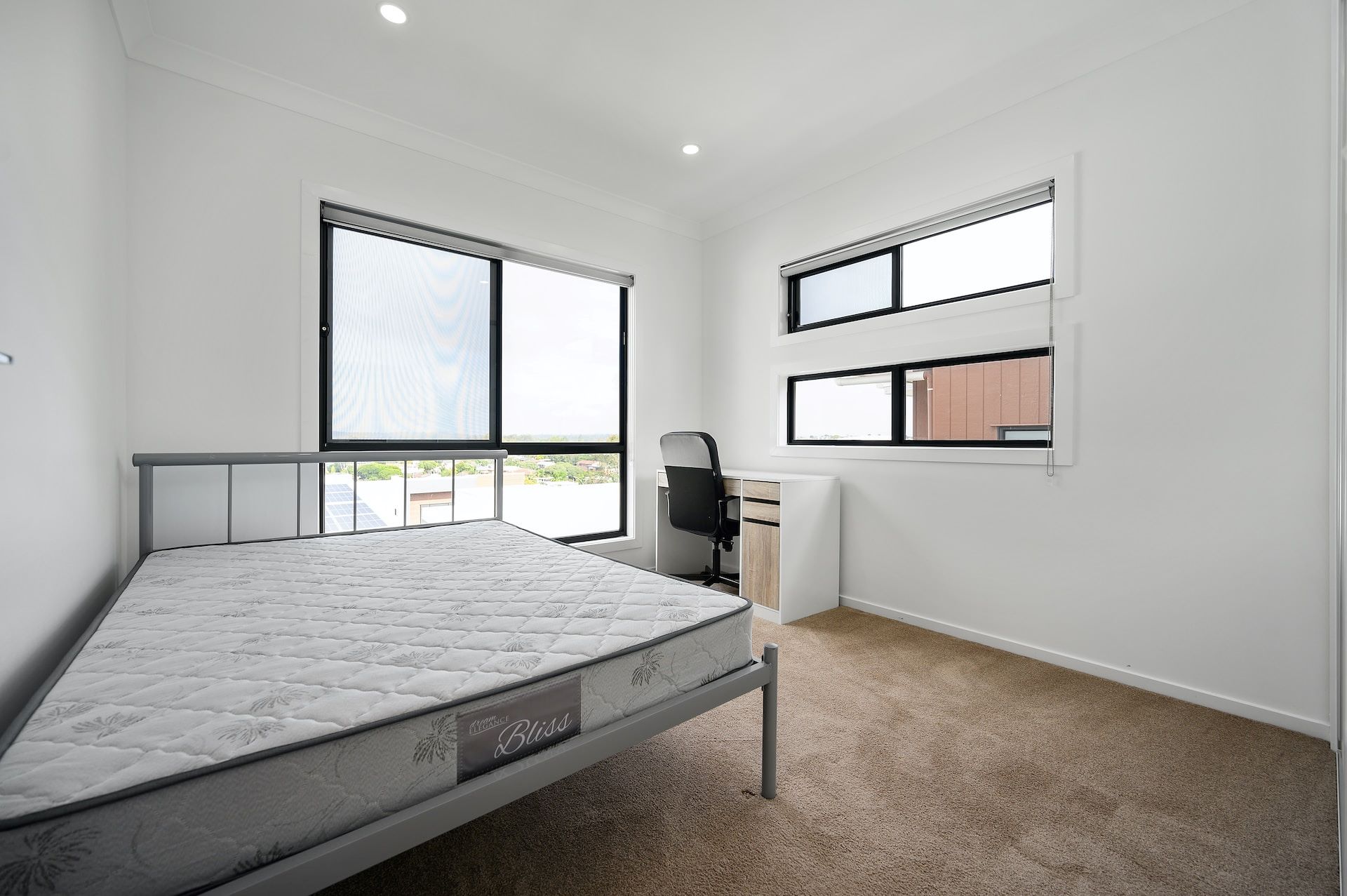

Bedroom Furniture
Why Is My New Mattress Squeaking
Modified: January 9, 2024
Discover the reasons why your new mattress is squeaking and learn how to fix it. Find solutions for squeaky mattresses in our comprehensive guide on bedroom furniture.
(Many of the links in this article redirect to a specific reviewed product. Your purchase of these products through affiliate links helps to generate commission for Storables.com, at no extra cost. Learn more)
Introduction
When you purchase a new mattress, you expect it to provide a comfortable and peaceful night’s sleep. However, there may come a time when you encounter an unexpected annoyance – a squeaky mattress. The constant squeaking noise can disrupt your sleep and leave you feeling frustrated. But fear not, as this article will delve into the reasons behind mattress squeaking and offer solutions to help you rid yourself of this noisy problem.
Understanding the cause of mattress squeaking is crucial in finding the appropriate solution. Depending on the type of mattress and its underlying support system, different factors contribute to the squeaking noise. By identifying these causes, you can better tackle the problem and ensure a quiet and restful night’s sleep.
In this article, we will explore the common causes of mattress squeaking, providing you with insight into the source of the issue. We will also discuss DIY solutions to fix a squeaky mattress that you can easily implement at home. Additionally, we will provide tips on preventing mattress squeaking in the future.
However, it is essential to note that not all cases of mattress squeaking can be addressed with DIY solutions. In some instances, seeking professional help may be necessary to properly diagnose and fix the problem. We will discuss when it is appropriate to seek expert assistance, ensuring that your mattress remains in optimal condition for years to come.
So, if you’re tired of lying awake at night listening to the frustrating squeaks, read on to discover the reasons behind mattress squeaking and the steps you can take to eliminate the noise once and for all.
Key Takeaways:
- Say goodbye to mattress squeaking by identifying the source and implementing DIY fixes. Prevent future squeaks with proper maintenance and seek professional help when needed for a peaceful sleep.
- Understand the causes of mattress squeaking, apply DIY solutions, and prevent squeaks with quality maintenance. Seek professional help for complex issues to ensure a quiet sleep environment.
Read more: Why Does A Mattress Squeak
Understanding Mattress Squeaking
Mattress squeaking is a common issue that many people experience at some point. The squeaking noise can be caused by various factors, including the materials used in the mattress, the quality of the construction, and the age of the mattress. Understanding these factors can help you better understand why your mattress is squeaking and how to address the problem.
One of the primary reasons for mattress squeaking is the use of low-quality or worn-out materials. Over time, the foam, coils, or springs in the mattress may deteriorate, leading to squeaking noises. Additionally, mattresses made with lower-quality materials are more prone to wear and tear, which can result in squeaking.
The construction of the mattress can also contribute to squeaking. For example, if the mattress has inadequate support or the components are not properly secured, it can cause the mattress to squeak when pressure is applied. This is particularly common in box spring mattresses or those with wooden slat supports.
Furthermore, the age of the mattress can play a role in squeaking. As mattresses age, the materials can become compressed or worn, increasing the likelihood of squeaking. Additionally, the constant movement and weight applied to the mattress over time can gradually cause the components to shift or become misaligned, resulting in squeaking.
It’s important to note that the type of mattress can also contribute to squeaking. Innerspring mattresses, which consist of coils and springs, are more prone to squeaking compared to memory foam or latex mattresses. However, this doesn’t mean that other types of mattresses are immune to squeaking.
Overall, understanding the factors that contribute to mattress squeaking is essential in addressing the problem effectively. By identifying the underlying cause of the squeak, you can implement appropriate solutions that will help you enjoy a quiet and comfortable sleep.
Common Causes of Mattress Squeaking
There are several common causes of mattress squeaking that homeowners may encounter. By understanding these causes, you can determine the best course of action to address the issue and eliminate the annoying noise. Let’s explore some of the most frequent culprits behind mattress squeaking:
- Loose or Worn-out Components: Over time, the various components of a mattress, such as coils, springs, or frame attachments, can become loose or degraded. When these elements move or rub against each other, it can create squeaking noises. This is especially common with innerspring mattresses that rely on coils for support.
- Improper Foundation: A mattress requires a stable and supportive foundation to ensure optimal performance. If the foundation, such as a box spring or bed frame, is not properly assembled or lacks adequate support, it can cause the mattress to squeak. Check for loose screws or unstable frames that may contribute to the noise.
- Friction from Bedding: The type of bedding used can affect the occurrence of mattress squeaking. For instance, if the sheets or mattress cover are made from slick or synthetic materials, they can cause increased friction against the mattress surface, resulting in squeaks. Opting for bedding materials with natural fibers or adding a mattress pad can help minimize friction-induced squeaks.
- Moisture and Humidity: Moisture can play a role in causing a mattress to squeak. Excess humidity or exposure to moisture can lead to the deterioration of materials, such as wood, causing them to warp or become misaligned. This compromised structural integrity can result in squeaking noises when pressure is applied to the mattress.
- Insufficient Mattress Maintenance: Regular maintenance of your mattress is essential to keep it in optimal condition. Failure to rotate or flip the mattress as recommended by the manufacturer can lead to uneven wear and tear and increase the likelihood of squeaking. It’s crucial to follow the maintenance guidelines provided by the manufacturer to prolong the lifespan of your mattress and prevent squeaks.
By identifying the specific cause of your mattress squeaking, you can more effectively address the issue with the appropriate solution. Whether it’s tightening loose components, ensuring a stable foundation, choosing suitable bedding materials, controlling moisture, or maintaining the mattress properly, taking action can help you enjoy a quieter and more peaceful sleep environment.
Identifying the Source of the Squeak
Once you’ve determined that your mattress is squeaking, the next step is to pinpoint the source of the noise. Identifying the specific area where the squeak originates will help you apply the most effective solution. Here are a few steps to help you identify the source of the squeak:
- Remove bedding: Start by removing all bedding, including sheets, mattress covers, and any other materials that may be covering the mattress. This will give you direct access to the surface of the mattress and allow you to better hear and locate the source of the squeak.
- Press and listen: Apply pressure to different areas of the mattress, focusing on the areas where you suspect the squeak is coming from. Move your hands across the mattress surface, pressing firmly to hear if any squeaking sounds are produced. Take note of the specific locations where the noise is most pronounced.
- Check mattress components: Inspect the various components of the mattress, such as the coils, springs, and frame attachments. Make sure that all screws and bolts are tightly secured and that there are no loose or damaged parts. If you notice any obvious signs of wear or damage, such as broken coils or springs, it may indicate the source of the squeak.
- Test the foundation: The foundation of your mattress, whether it is a box spring, bed frame, or platform, can contribute to squeaking. Check the stability and integrity of the foundation, looking for any loose screws, worn-out joints, or inadequate support. Apply pressure to different areas of the foundation to see if any squeaking noises are produced.
- Take note of mattress movement: Pay attention to any specific movements or actions that trigger the squeaking noise. For example, if the squeak occurs when you get in or out of bed, it may indicate a problem with the foundation or frame. If the squeak is present when you change sleeping positions or apply pressure to a specific area, it may suggest an issue with the mattress’s internal components.
By going through these steps, you’ll gain a better understanding of the source of the squeak in your mattress. Whether it’s a loose component, an unstable foundation, or a specific area of wear or damage, this knowledge will guide you in finding the most effective solution to eliminate the annoying squeaking noise.
To reduce mattress squeaking, try placing a thin layer of lubricant, like silicone spray or baby powder, between the mattress and the box spring or bed frame. This can help reduce friction and noise.
DIY Solutions to Fix a Squeaky Mattress
Now that you’ve identified the source of the squeak in your mattress, it’s time to explore some DIY solutions to fix the problem. These solutions are simple and can be implemented at home without the need for professional assistance. Here are a few effective methods to consider:
- Tighten Loose Components: If the squeak is originating from loose screws or bolts, use a screwdriver or wrench to tighten them. Check all the frame attachments, including the headboard, footboard, and side rails, as well as any support brackets or slats. Ensure that everything is securely fastened and that there is no movement or play in the mattress support system.
- Use Lubrication: Lubricating the areas where the mattress components rub against each other can help reduce friction and eliminate the squeak. Consider using a silicone-based lubricant or even household items like talcum powder or petroleum jelly. Apply the lubricant to the coils, springs, or other moving parts to create a smoother surface and reduce noise.
- Address Wooden Frame Issues: If you have a wooden bed frame or foundation, inspect it for any signs of wear, damage, or misalignment. Tighten loose screws or replace damaged wood parts if necessary. You can also consider adding wooden shims or rubber pads between the mattress and the frame to minimize movement and noise.
- Apply Padding: Adding padding between the mattress and the foundation or frame can help reduce noise caused by friction. Use adhesive-backed felt pads or rubber cushions to create a buffer between the mattress and the support system. This padding will absorb some of the vibrations and lessen the likelihood of squeaking.
- Rotate or Flip the Mattress: Uneven wear and tear can contribute to mattress squeaking. Rotating or flipping the mattress can help distribute the weight more evenly, preventing excessive pressure on specific areas. Consult the manufacturer’s guidelines for proper rotation or flipping patterns, as this may vary depending on the type of mattress you have.
It’s important to note that these DIY solutions may not be applicable or effective for all types of mattresses or specific cases of squeaking. If you’ve tried these methods and the squeak persists, or if you encounter any complex issues during the troubleshooting process, it may be best to seek professional assistance to avoid causing further damage to your mattress.
By implementing these simple DIY solutions, you can significantly reduce or eliminate the squeaking noise in your mattress, allowing you to reclaim a peaceful and quiet sleep environment.
Read more: Why Is My Air Conditioner Squeaking
Preventing Mattress Squeaking
Prevention is key when it comes to avoiding mattress squeaking in the first place. By taking proactive measures, you can extend the lifespan of your mattress and minimize the chances of encountering this annoying issue. Here are some tips to help prevent mattress squeaking:
- Invest in a Quality Mattress: Start by choosing a high-quality mattress from a reputable manufacturer. Look for mattresses with durable construction and materials that are less likely to deteriorate or develop squeaking over time.
- Properly Support the Mattress: Ensure that your mattress has a stable and supportive foundation. Refer to the manufacturer’s guidelines for the recommended type of support system, whether it’s a box spring, bed frame, or platform. A solid and properly installed support system will help reduce the strain on the mattress, minimizing the chances of squeaking.
- Rotate and Flip the Mattress Regularly: Follow the manufacturer’s recommendations for rotating and flipping your mattress. This will help distribute the weight evenly and prevent excessive wear on specific areas. Regular rotation and flipping can reduce the chances of uneven compression and the development of squeaks.
- Use a Mattress Protector: Consider using a mattress protector to minimize the exposure of your mattress to moisture, spills, and other potential sources of damage. A waterproof or moisture-resistant mattress protector can help prevent warping, rusting, or deterioration of the mattress components that could lead to squeaking.
- Maintain a Dry Sleep Environment: Moisture and humidity can contribute to squeaking by causing the materials in the mattress to warp or degrade. Keep your bedroom well-ventilated and maintain a moderate humidity level. Avoid placing the mattress directly on the floor, as this can inhibit air circulation and encourage moisture buildup.
By following these preventive measures, you can significantly reduce the likelihood of mattress squeaking and prolong the lifespan of your mattress. However, it’s important to remember that even with the best prevention methods, squeaking can still occur over time due to normal wear and tear. In such cases, it’s crucial to address the issue promptly to avoid potential discomfort and disruptions to your sleep.
Remember, prevention is always more effective and less costly than trying to fix a problem after it has occurred. By taking care of your mattress and implementing these preventive measures, you can enjoy a quiet, comfortable, and squeak-free sleep for years to come.
When to Seek Professional Help
While many instances of mattress squeaking can be resolved with DIY solutions, there are times when it is necessary to seek professional help. Here are some situations in which it is advisable to enlist the expertise of a professional:
- Complex or Unidentifiable Issues: If you’ve thoroughly investigated the source of the squeak and are unable to pinpoint the exact cause, it may indicate a more complex problem. Professional mattress technicians have the knowledge and experience to diagnose and address these issues effectively.
- Structural Damage: If you notice visible damage to the mattress, such as broken coils, springs, or frame components, it is best to seek professional assistance. These structural damages may require professional repair or, in some cases, replacement of the affected parts or even the entire mattress.
- Ineffective DIY Solutions: If you’ve tried various DIY solutions to fix the squeaking and the noise persists, it may indicate that the underlying problem requires professional attention. Continuing to attempt DIY repairs without success can potentially worsen the issue or cause additional damage to the mattress.
- Warranty Coverage: If your mattress is still under warranty, it is advisable to contact the manufacturer or retailer for assistance. They may provide professional inspection and repair services free of charge or at a reduced cost, ensuring that you maintain the warranty coverage on your mattress.
- Time and Skill Constraints: Some DIY solutions may require specialized tools, technical expertise, or significant time commitment. If you lack the necessary tools or skills, or if you simply prefer to leave the task to professionals, seeking professional help is the best course of action.
Professional mattress technicians have the knowledge and experience to diagnose and address complex squeaking issues. They can provide expert guidance and perform the necessary repairs or replacements to eliminate the squeak and restore your mattress to its optimal condition.
Remember that addressing mattress squeaking promptly is crucial to prevent further damage and maintain a peaceful sleep environment. If in doubt or if DIY solutions prove ineffective, seeking professional help will ensure that the problem is resolved correctly, allowing you to enjoy a squeak-free and restful night’s sleep.
Conclusion
Dealing with a squeaky mattress can be a frustrating experience that disrupts your sleep and affects your overall comfort. However, by understanding the causes and implementing the appropriate solutions, you can eliminate the annoying squeaking noise and enjoy a peaceful night’s sleep once again.
In this article, we discussed the common causes of mattress squeaking, such as loose components, improper support, friction from bedding, moisture, and insufficient maintenance. We also explored DIY solutions that you can easily implement at home, including tightening loose components, lubricating moving parts, addressing wooden frame issues, adding padding, and properly maintaining your mattress.
Furthermore, we emphasized the importance of prevention in avoiding mattress squeaking altogether. Investing in a quality mattress, properly supporting it, regularly rotating and flipping, using a mattress protector, and maintaining a dry sleep environment are all effective measures to prevent squeaking from occurring in the first place.
However, in some cases, seeking professional help is necessary. Complex or unidentified issues, structural damage, ineffective DIY solutions, warranty coverage, or time and skill constraints are all valid reasons to consult professional mattress technicians who can diagnose and address the problem effectively.
By taking proactive measures to prevent mattress squeaking and promptly addressing any issues that arise, you can ensure a quiet and restful sleep environment. Remember that your mattress plays a significant role in your overall well-being, and maintaining its quality and performance is essential for a comfortable and rejuvenating sleep experience.
So, if you find yourself facing the annoyance of a squeaky mattress, don’t despair. Use the information and solutions provided in this article to identify the source, implement the appropriate DIY fixes, and prevent future occurrences. With a little effort and the right approach, you can bid farewell to mattress squeaking and enjoy the peaceful sleep you deserve.
Frequently Asked Questions about Why Is My New Mattress Squeaking
Was this page helpful?
At Storables.com, we guarantee accurate and reliable information. Our content, validated by Expert Board Contributors, is crafted following stringent Editorial Policies. We're committed to providing you with well-researched, expert-backed insights for all your informational needs.
